On campus
9. on campus
The UPF Legal Clinic: A meeting point for social justice and innovation in law
The UPF Legal Clinic is a solidarity-driven service-learning initiative led by the Faculty of Law targeted at vulnerable people and groups. It was founded last academic year.
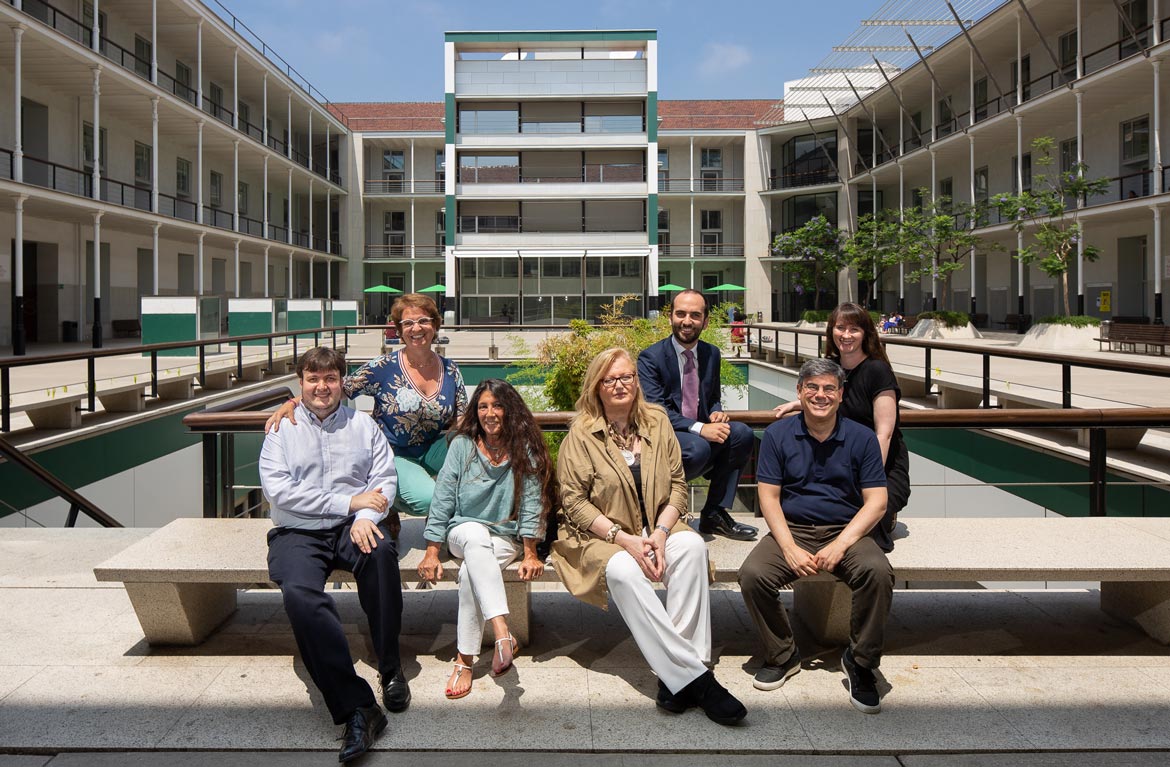
Solidarity, awareness, social justice, respect for human rights, legal and teaching innovation, pro bono defence, volunteering and service learning are some of the values at play in the UPF Legal Clinic. An initiative of the Faculty of Law, the Clinic was launched in November 2018 and took on a total of 13 cases in the last academic year.
The UPF Legal Clinic is targeted at vulnerable people and groups who, due to their limited economic means, lack access to adequate legal services. With the primary aim of narrowing the gap between the Faculty of Law and society, the Legal Clinic is made up of students, teaching staff, alumni and volunteer lawyers and is open to anyone seeking to engage in social volunteering at the university.
‘Drawing inspiration from institutions in English-speaking countries, UPF has developed a model legal defence clinic’“
‘Drawing inspiration from institutions in English-speaking countries, where the first legal clinics were founded in the early 20th century, UPF has developed a model legal defence clinic, i.e. a clinic intended to help students understand how a person’s defence works in a real context’, explained Anna Caballé Martorell, dean of the Faculty of Law and a lecturer on Roman law.
In Spain, the first legal clinics were not founded until the 21st century. Today, there are 27 such clinics, grouped within the Spanish Legal Clinic Network. However, few are based on this US-style defence model. Most do not go beyond offering advice and drafting reports.
‘At UPF, students work on real cases, advised by experts, scholars and lawyers, in collaboration with NGOs and non-profit-making organizations. This learning has a direct and positive impact on society, which allows us to give back’, Caballé said.
‘The Legal Clinic’s impact is twofold: academic and social’
According to its director, Maurici Pérez Simeón, a lecturer on Roman law and comparative law at UPF, the Legal Clinic’s impact is twofold: academic and social. ‘From an academic point of view, the Legal Clinic allows students to see law in action, participating in the defence of a real case. From a social point of view, it makes it possible to offer appropriate legal advice to people who, for one reason or another, lack access to it’, he said.
To address all these fronts, in addition to the dean and director, the Legal Clinic has the following six sections and coordinators (many of them UPF alumni): citizen services (Elena Roselló Cherigny and Tomàs Gabriel García Micó, lecturers in the Department of Law); NGO relations (Oriol Valentí, lawyer and lecturer in the Department of Law); regulatory compliance (Gabriela Boldó, lawyer and academic coordinator of the BSM-UPF Master’s in Legal Practice); a permanent seminar (Alberto Carrio, lecturer in the Department of Law); communication (Adrián López, lawyer); and international communication (Kate Ewing, lawyer, and Gisela Guarí, translator).
Thirteen cases accepted, two currently in court
Over the Legal Clinic’s first academic year of operation, a total of 13 cases were accepted. Eleven are still under study, whilst two have gone to court (one of these latter cases has been split up, resulting in two claims linked to a single case).
The first case to go to court is the case ‘Family law: child born to unmarried couple’, involving a young pregnant woman of limited means who was forced to leave the family home by her partner when she refused to terminate her pregnancy.
The second case is the ‘Second Chance Act: Personal bankruptcy and public law debts’ case, in which it will be argued that the court should cancel the debts of two bankrupt people and give them a chance to start over in their working lives.
‘There are 11 cases under study, involving highly diverse situations’
The 11 cases under study involve highly diverse situations: gender-based discrimination in the sports arbitration of a Catalan federation; a boy with cerebral palsy versus an intercity transport company that refuses to undertake the adaptation works needed to make a town’s bus station accessible; an NGO discriminated against on ideological grounds by a municipal institute.
Other cases include those of subletters from the Raval neighbourhood who, after living for 25 years in their flat, are facing unfair eviction by their landlord; a second-chance case involving a woman heavily indebted to the tax agency; and two cases involving unaccompanied foreign minors over whom the Catalan government has guardianship that it has failed to formally establish, thereby preventing them from receiving the benefits due to former wards, leaving them eligible for only a residence permit, rather than a work permit.
What types of cases does the Legal Clinic accept and how are they processed?
Insofar as possible, in addition to an initial level consisting of the provision of a basic legal guidance service to the people and organizations that turn to it, the Legal Clinic selects cases deemed to have particular social and academic interest. ‘We try to strike a balance between the case’s interest, its feasibility and the person’s need’, said Pérez Simeón.
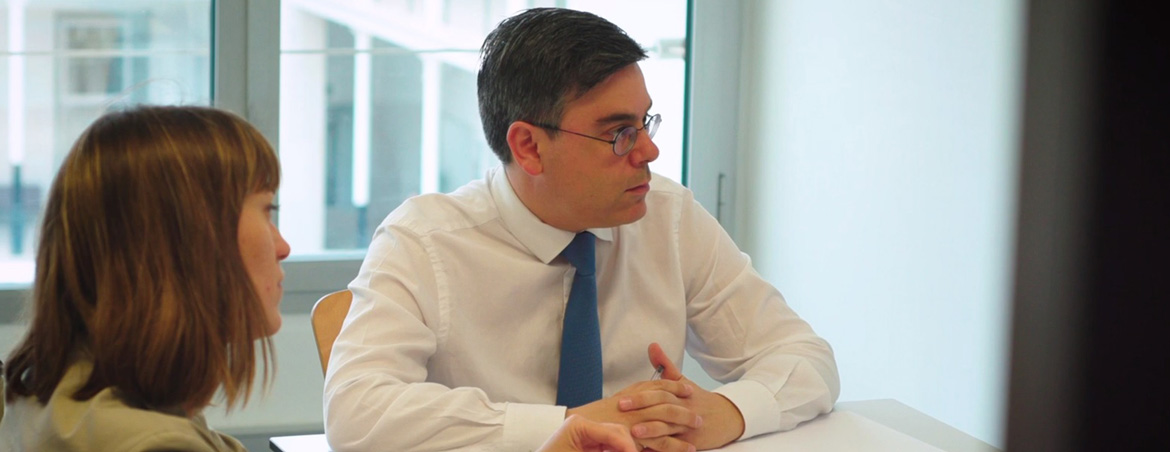
According to the director, with regard to the eleven cases under study, ‘We will have to decide at the start of the 2019-2020 academic year which of these cases will be taken to court; there may be two or three. We hope to settle the rest of the cases without the need to go to court, either in a negotiation stage or because the preliminary opinion is that a lawsuit would not be helpful, because we have concluded that the case does not meet the necessary requirements to stand a reasonable chance of succeeding. ’
‘Ideally, we would like the judgment to change some point of law that does not work’
As for the accepted cases, the director added, ‘Ideally, we would like the judgment to change some point of law that does not work. We want to foster changes that require a rule to be reconsidered; we’re interested in suits that have an importance that transcends the specific case and can set a precedent’, he said.
Cases that do not have any sort of future are not submitted to the study committee, which only accepts those deemed to have a certain viability. At that point, a working team is created for each accepted case made up of three students (one of whom is the group leader, the linchpin, the driver, with whom the Legal Clinic’s management will liaise), a lecturer and a lawyer (where the case so requires). Finally, a document is drafted assessing how to proceed.
A model that gives rise to bachelor’s degree final projects
Some cases can give rise to one or more bachelor’s degree final projects, carried out by students in the final year of their undergraduate degree in Law. ‘Cases with potentially significant academic value are chosen so that some of our students can write their bachelor’s degree final paper based on what they learn from undertaking a real case’, said Esther Farnós Amorós, director of studies of the Faculty of Law.
In the 2018-2019 academic year, the two cases taken to court gave rise to a total of six bachelor’s degree final projects
In the 2018-2019 academic year, the two cases currently in court gave rise to a total of six bachelor’s degree final projects, three for each case. These projects have the same format as other projects, with the sole particularity that they are carried out within the framework of a specific case. With regard to the case involving the pregnant woman (she gave birth to the child in July and the Legal Clinic filed the suit at the end of that month), students have written three bachelor’s degree final projects on different topics and with different supervisors, each examining a complementary aspect of the case.
One final project focused on children born out of wedlock, examining what happens when a young woman becomes pregnant and the father refuses to recognize the child and how to proceed to ensure that a judge rules on it. Another examined the issue of unmarried couples who cease to live together within less than two years, even though the woman is pregnant. Finally, the third looked at issues of private international law, as the father of the child in this case lives abroad.
‘My task was to show that the person is the child’s father and the consequences that has for the child’
Gemma Novau, a fifth-year student on the double degree programme in Law and Business Management and Administration last academic year, was the author of the final project on children born out of wedlock (for which she received a mark of 9). ‘My task was to show that the person is the child’s father and the consequences that has for the child. It is an international case, as this person’s estate is outside Spain, he does not want to recognize the girl as his daughter, and, also, we do not know how he will react to the lawsuit’, explained Novau, whose final project supervisor was Farnós.
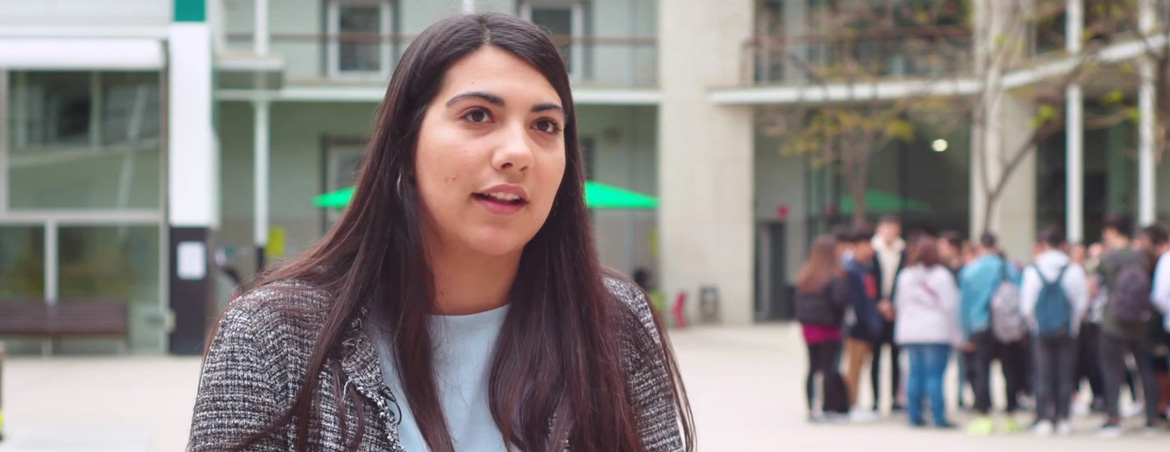
Novau has already finished her bachelor’s degree in law. In the 2019-2020 academic year, she will complete the final term of the bachelor’s degree in Business Management and Administration, which she will combine with the BSM-UPF Master’s in Legal Practice. She intends to continue her affiliation with the Legal Clinic and, if she can, to do her master’s degree final project on one of the accepted cases, whether the one she has worked on to date or another one. ‘I think that being able to work with the Legal Clinic as students is very interesting, as it allows us to analyse and learn about a real family law case, from start to finish, and perform a comprehensive analysis of the problem’, she said.
The lawyers, an essential piece
Farnós highlighted the work of the lawyers, who give continuity to all the preliminary work that the students have done at the Faculty. ‘Given that students cannot yet defend cases, the lawyers are very important, as it is they who will represent the case pro bono in court.’
The lawyer working jointly on the case with Gemma, who prepared the lawsuit based on the information provided by the three bachelor’s degree students’ final projects, is Rosa Artigas, who is also the person responsible for bringing the case to court: ‘Law firms should be part of the Legal Clinic. I think it is an ethical requirement, inherent to our profession. There are cases that are very unfair and that require us to intervene without waiting to see if there is any money to be made’, she said.
According to Artigas, the Legal Clinic is a great opportunity for students, allowing them to gain both a theoretical and a practical perspective based on a real case: identifying it, studying it and seeing how the problem is transformed into a proceeding that reaches the courts and is settled. ‘The Legal Clinic is interesting both for the interested party, who has a problem that he or she lacks the financial means to solve, and for the university, insofar as it teaches values to students, about how to ensure that justice is accessible to all’, she said.
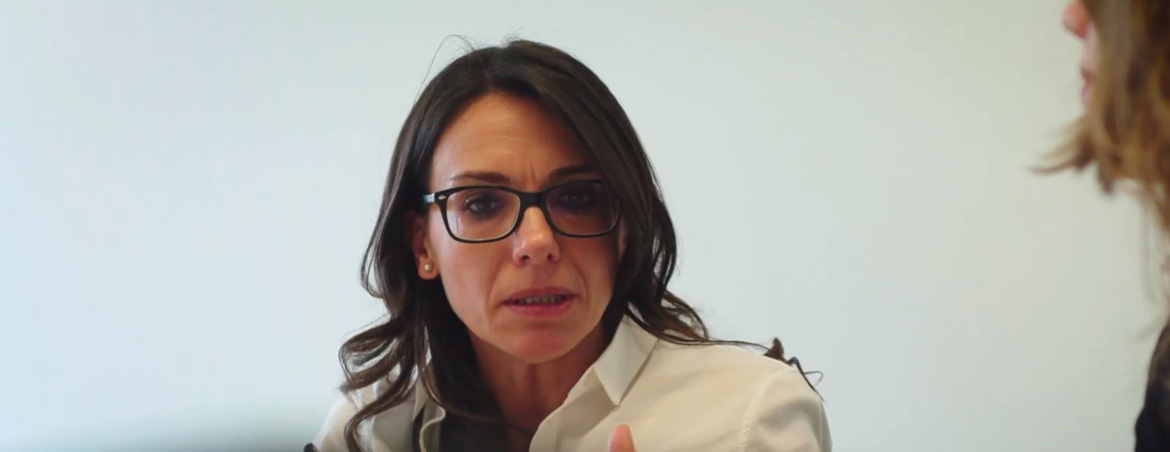
Participation of all volunteers in the various phases of the legal proceedings
The academic benefits go beyond the filing of the lawsuit. For example, according to Pérez Simeón, in the case of the child born to the unmarried couple, once the lawsuit has been filed, this September or in early October, a public session will be held open to all Legal Clinic volunteers, featuring talks by a lecturer on civil law and a lecturer on procedural law. Using the lawsuit, they will analyse why it was handled the way it was.
Subsequently, a public screening of the preliminary hearing is planned, with commentary by a lecturer on procedural law, in which the allegations of each party will be explained and justified. ‘Our idea is for everyone to participate a bit in all of the cases, notwithstanding the fact that there will be certain people expressly assigned to each one’, said the Legal Clinic director.
Increasing the submission of new cases
One of the main objectives for the 2019-2020 academic year is to consolidate and increase the inflow of interesting new cases, a process that will require time, and to achieve a critical mass of between 10 and 20 cases to move on to the study phase. So far, most of the cases have been submitted by NGOs, key players for the proper functioning of the Legal Clinic. Currently, the Legal Clinic is collaborating with around ten NGOs, and this figure is expected to rise in future.
So far, most of the cases have been submitted by NGOs
A second means of submission has been by lawyers who were already representing cases pro bono and who have joined the Legal Clinic. To a lesser extent, cases have been examined as a result of online petitions and or the knowledge of a student at the university.
As a positive measure to increase the submission of cases, an agreement was recently reached with the Office of the Catalan Ombudsperson for that institution to be able to inform the people it assists whose profile matches the Legal Clinic’s about its services.
The 2018-2019 academic year in numbers
Cases accepted
Participating volunteers
Partner NGOs
Affiliated law firms
Affiliations, volunteering and sponsorship
The UPF Legal Clinic, a non-profit initiative whose operation is made possible by funding from the university itself and selfless personal dedication, enables many types of participation and levels of commitment, both by public or private organizations and by individuals. This participation can range from simple endorsement of and support for the initiative to volunteering and sponsorship.
Anyone of legal age can volunteer
Volunteers, who agree to commit some of their time, are necessary for the Legal Clinic to work. Anyone of legal age can volunteer, especially people who are or have been affiliated with UPF. The tasks they are assigned will depend on the Clinic’s needs and the volunteers’ qualifications: not only lawyers are needed, but also IT specialists, communication and social network experts, administrative support, etc.
Currently, the Legal Clinic has around one hundred volunteers, the vast majority of whom are undergraduate students (around 80%) and the rest of whom are master’s students and lawyers, especially junior lawyers. Amongst the students, 95% of the volunteers are women. There is more parity amongst participants from the law firms.
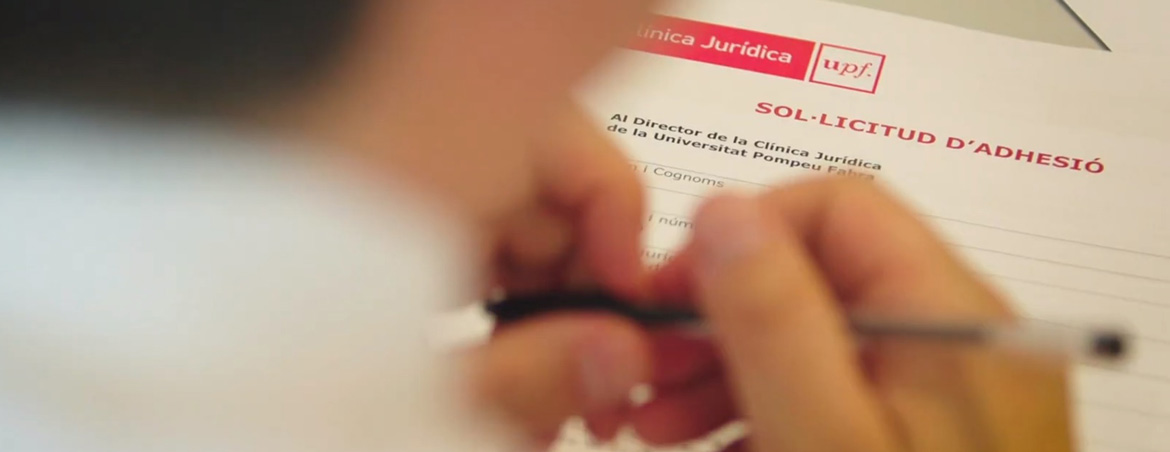
‘This first academic year of operation it was rather difficult for us to reach people who were not affiliated with UPF. What we need most are leadership profiles, people who have already graduated. So far, we have had to assign this position to students in the final year of their degree, which is probably not ideal, although it has turned out rather well’, said Pérez Simeón.
With regard to sponsorship, the Legal Clinic is collaborating with UPFund, the university’s dedicated service for developing such matters. UPFund collects donations that are used as additional resources for specific activities, such as communication tasks or to meet expenses (attorneys, experts, translators, etc.) for services that cannot be obtained for free through the volunteer professionals.
Sponsorship of legal costs and funding
There is also a programme for the sponsorship of legal costs, which could come into play in cases in which the Legal Clinic seeks to advance law by filing innovative interpretations of the law in court. In such cases, there is the risk that the interested party could be sentenced to pay the legal costs of the opponent, should they lose. Therefore, people or organizations that can commit to bearing those costs are needed.
‘We need people who agree to cover the risks of costs, and it is proving harder than expected’
‘For now, in the cases we have, the cost risks are low. In the 2019-2020 academic year, when the cases of the unaccompanied foreign minors come into play, the risk of having to pay these costs will be higher’, Pérez Simeón explained. ‘We need people who agree to cover these risks, and it is proving harder than expected, even though the amounts at stake are not that high’, he said. Nevertheless, ‘our idea is to deal with this on a case by case basis. It may be easier to cover the risk of costs when we are dealing with a specific case.’
With regard to funding, the director explained, ‘The Legal Clinic is not in bad financial shape, because it has the backing of UPF. For example, last July, we received a grant of around €4,000 under the most recent PlaCLIK educational innovation call. With regard to the new academic year, although we would like to have a sponsor, we do not want to sell the Legal Clinic off to anyone: its independence and its neutrality are essential, and we will find the resources somewhere’, Pérez Simeón concluded.
How to contact the Legal Clinic?
Web: https://www.upf.edu/web/clinica-juridica
Mail: [email protected]
